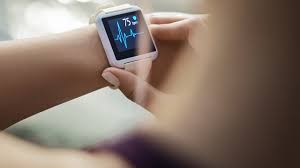Wearable Cardiological Devices Revolutionizing Heart Health Monitoring: Experts Highlight Their Potential
Experts at the Cardiological Society of India (CSI) Conference emphasized the transformative role wearable cardiological devices are poised to play in managing heart health. These advanced technologies, including smartwatches and chest-mounted sensors, are set to

Experts at the Cardiological Society of India (CSI) Conference emphasized the transformative role wearable cardiological devices are poised to play in managing heart health. These advanced technologies, including smartwatches and chest-mounted sensors, are set to improve the detection and treatment of cardiovascular conditions, offering innovative approaches to healthcare.
Advancing Real-Time Monitoring and Early Intervention
Prof. Rishi Sethi, a leading cardiologist and faculty member at King George’s Medical University, underscored the importance of wearables equipped with electrocardiogram (ECG) capabilities. “These devices can detect irregular heart rhythms such as atrial fibrillation in real-time, providing early warnings and enabling timely medical interventions,” said Prof. Sethi.
By identifying critical conditions like arrhythmias at their onset, wearable devices empower users to seek medical attention before these issues escalate. This early detection is especially significant in reducing the risk of complications, such as strokes or heart attacks.
Empowering Preventive Cardiology Through Innovation
Wearable technology is not only aiding individual health management but is also contributing to the broader field of preventive cardiology. Devices capable of continuous heart rate monitoring, blood pressure analysis, and other vital parameters offer valuable data for healthcare professionals.
“These tools enhance patient engagement by providing actionable insights into their heart health,” Prof. Sethi added. “With real-time data, healthcare providers can create personalized treatment plans and improve outcomes.”
Global Implications for Cardiovascular Health
The integration of wearables into cardiology has global implications, addressing the growing prevalence of heart disease. According to recent studies, cardiovascular diseases remain the leading cause of mortality worldwide. These devices could play a vital role in managing this burden by promoting early diagnosis and encouraging a proactive approach to heart health.
Challenges and Future Directions
While the benefits of wearable cardiological devices are promising, experts also highlighted challenges, including the need for widespread adoption, affordability, and ensuring accuracy. The conference called for collaboration between technologists, healthcare providers, and policymakers to overcome these hurdles and make the technology accessible to all.
As the CSI Conference concludes, the emphasis on integrating wearables into cardiological practices reflects a significant step toward more efficient and accessible healthcare. With ongoing advancements, wearable devices hold the promise of transforming heart health management for millions worldwide.






